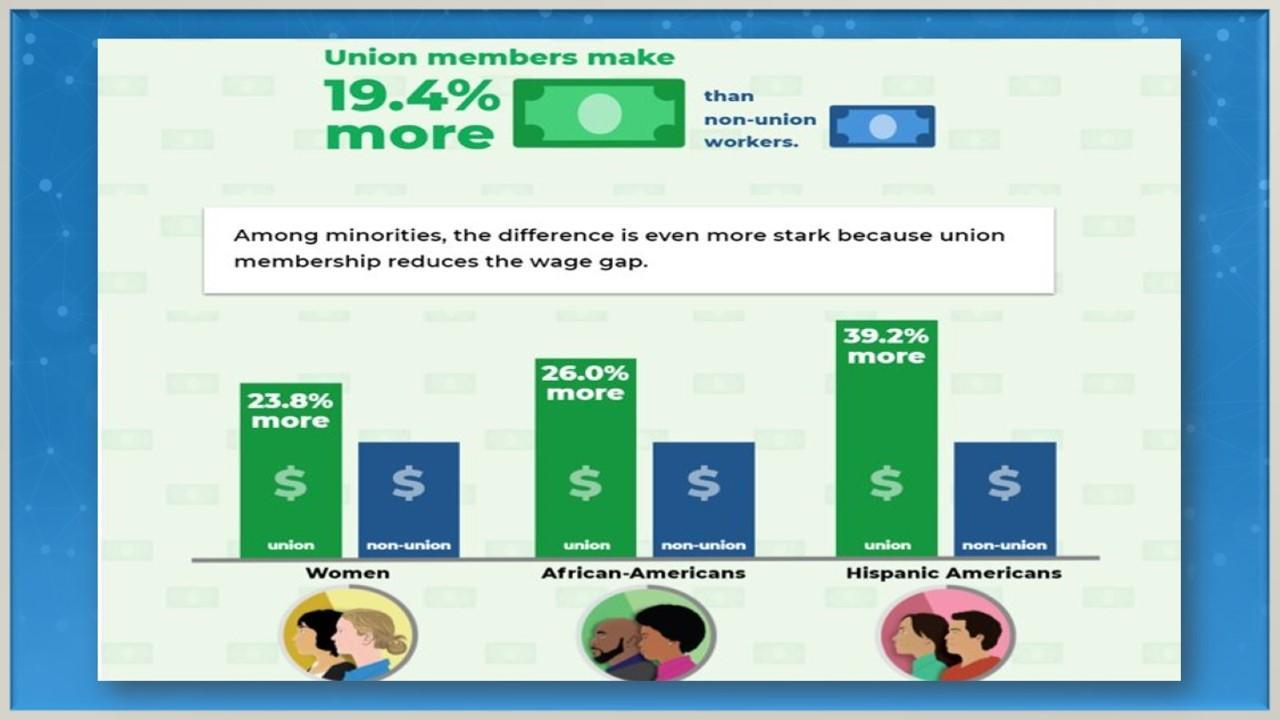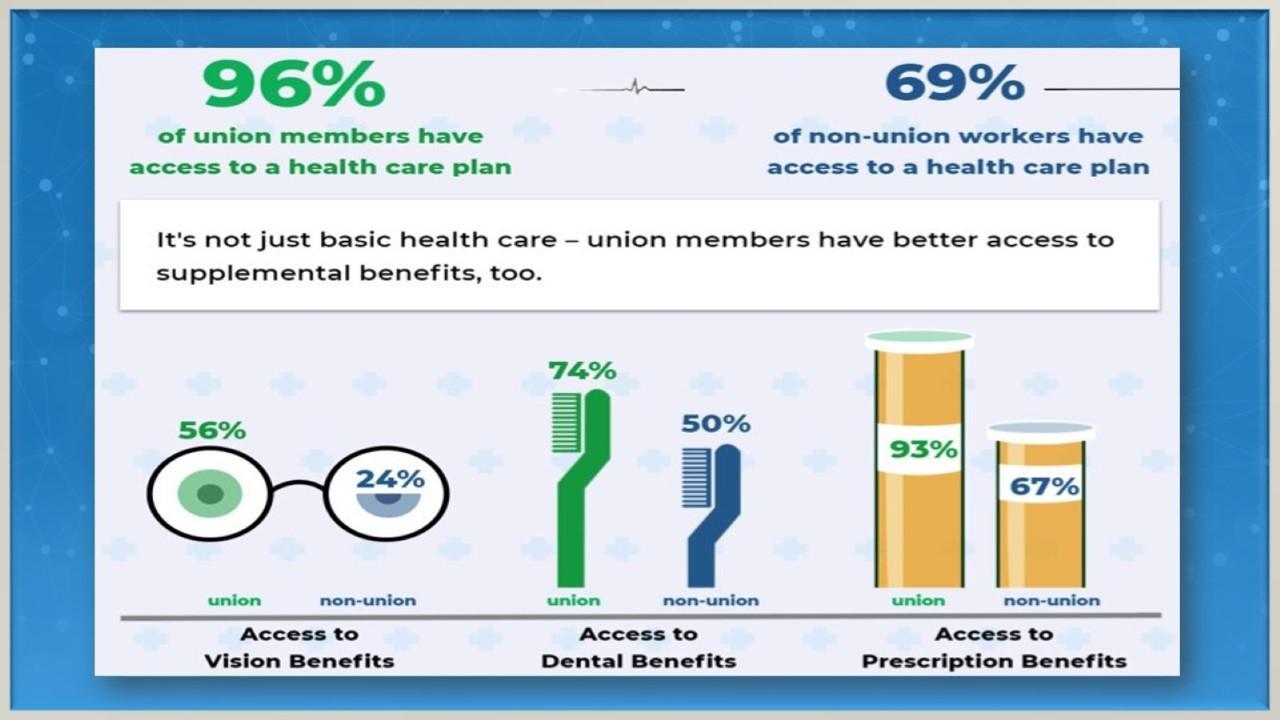Employees can solve problems at work more effectively as a group. Through forming a union and negotiating a contract, employees can secure the things they like about their job, and they can make changes in areas that need improvement.
White-collar and blue-collar workers agree: With a union, they have a concrete way to improve their jobs and their lives. Unions get results.
A Voice at Work
If employees don't have a voice at work, they can gain one through a union. If they face unfair treatment, they can negotiate policies that ensure fairness. If they have low wages and poor benefits, they have a way to demand better. If they have concerns about staffing levels, overtime, safety or other conditions of work, they can have a voice in making change.
Better Pay
Union membership helps raise workers' pay and narrow the income gap experienced by minorities and women. Union workers earn 28 percent more than nonunion workers, according to the U.S. Department of Labor's Bureau of Labor Statistics. Their median weekly earnings for full-time wage and salary work were $696 in 2000, compared to $542 for their nonunion counterparts.
The union wage benefit is even greater for minorities and women. Union women earn 31 percent more than nonunion women; African American union members earn 37 percent more than their nonunion counterparts and for Latino workers, the union advantage totals 55 percent.

Better Benefits
Union workers are more likely than their nonunion counterparts to receive health care and pension benefits, according to the Bureau of Labor Statistics.
In 1997, 86 percent of union workers in medium and large establishments had medical care benefits, compared with only 74 percent of nonunion workers. Union workers also are more likely to have retirement and short-term disability benefits.

We Advocate for our clients and address staff issues.
Unionized employees are able to work collectively with management to address issues that can impact clients outcomes. Through the bargaining process we are able to secure the things we love and make improvements for ourselves and our clients.
We fight burnout and high turnover.
Behavioral Health providers are three to four times more likely to experience burnout than primary care providers. Only together can we fight for higher wages, adequate staffing levels, reasonable caseloads and respect in the workplace.
We build community.
As a union we have the resources and network to foster community partnerships that raise awareness to the mental and behavioral health issues that affect our clients most. We fight for more access to services and the funding we need keep quality care a priority through rising demand.
We create pathways.
As behavioral health employees and residents, we advocate at the county, state and national levels for increased funding, student loan debt forgiveness, funded continuing education and industry-wide transparency, amonth other meaures, to ensure we have paths to make the improvements we want and our clients and communities we deserve.
